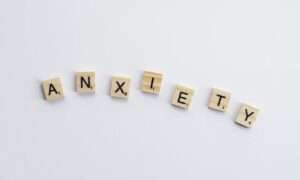Introduction: Conquer Anxiety and Fear with Effective Strategies
Topics Exploring : How to overcome anxiety and fear, Coping mechanisms for anxiety, Overcoming fear and stress, Anxiety management strategies ,Fear control techniques ,Effective stress reduction methods, Effective Anxiety Solutions, Fear Mastery Techniques ,Proven Anxiety Strategies ,Anxiety Relief Tactics ,Fear Reduction Methods ,How to overcome anxiety and fear
How to Overcome Anxiety and Fear:
Anxiety and fear can be debilitating, making it challenging to lead a fulfilling and confident life. However, there are effective strategies to conquer these emotions and regain control over your thoughts and actions. By implementing the right techniques, you can overcome anxiety and fear and pave the way for a happier and more peaceful existence. Let’s explore some proven methods to tackle these overwhelming emotions head-on.
Effective Anxiety Solutions:
When it comes to managing anxiety, it’s essential to adopt a multi-faceted approach that addresses the root causes and symptoms. Here are some powerful strategies that can provide relief:
Mindfulness Meditation:

Engaging in mindfulness meditation can help alleviate anxiety by focusing your attention on the present moment. By staying aware of your thoughts and sensations without judgment, you can gradually reduce anxiety and create a sense of calm.
Cognitive Behavioral Therapy (CBT):

CBT is a highly effective therapeutic approach that helps individuals recognize and challenge negative thought patterns that contribute to anxiety. Through CBT, you can learn healthier coping mechanisms and reframe your perception of fear-inducing situations.
Regular Exercise:
Physical activity has been proven to reduce anxiety and improve overall mental well-being. Engaging in activities such as jogging, dancing, or yoga releases endorphins, the body’s natural mood-enhancers, and promotes relaxation.
Healthy Lifestyle Choices:
Nurturing your body through proper nutrition, adequate sleep, and limiting caffeine and alcohol intake can significantly impact your anxiety levels. Avoiding substances that can exacerbate anxiety and prioritizing self-care are crucial steps in managing this condition.
Fear Mastery Techniques
Fear is a natural response to perceived threats or dangerous situations. However, when fear becomes overwhelming and inhibits your daily life, it needs to be addressed. Here are some techniques to help you overcome fear and regain control:
Gradual Exposure:

Facing your fears in a controlled and gradual manner allows you to build resilience and realize that the perceived threat may not be as harmful as you initially believed. Slowly confronting your fears, with the support of a therapist or trusted friend, can help desensitize your emotional response.
Positive Visualization:

Visualizing successful outcomes and positive scenarios can help rewire your brain’s response to fear-inducing situations. By visualizing yourself handling the situation with confidence and ease, you can reduce the impact of fear on your thoughts and actions.
Breathing and Relaxation Techniques:
Deep breathing exercises, such as the 4-7-8 technique, can activate the body’s relaxation response and reduce fear. Additionally, progressive muscle relaxation, where you systematically tense and relax different muscle groups, can help release tension associated with fear.
Explore the following breathwork exercises crafted to induce profound relaxation in the body. Incorporating practices such as the 4-7-8 breathing technique can provide a rejuvenating lift to both the mind and body.
Courtesy : YouTube
Seeking Support:
Connecting with others who have overcome similar fears can provide invaluable guidance and motivation. Joining support groups or seeking therapy can offer a safe space to share your fears and receive encouragement from those who understand what you are going through.
Proven Anxiety Strategies:
Anxiety management requires a combination of self-reflection and practical strategies. Here are some proven methods to alleviate anxiety and regain control over your mental well-being:
Journaling:

Writing down your worries and anxieties can help externalize your thoughts and gain perspective. Journaling also allows you to identify patterns and triggers, enabling you to develop effective coping mechanisms.
Social Support:
Surrounding yourself with a supportive network of friends and family who understand and empathize with your anxiety can provide immense comfort. Opening up to loved ones about your struggles promotes connection and reduces feelings of isolation.
Self-Care:
Prioritizing self-care activities, such as regular exercise, getting enough sleep, and engaging in hobbies you enjoy, can improve your overall well-being and reduce anxiety levels. Taking time for yourself and engaging in activities that bring you joy is vital for maintaining mental balance.
Setting Realistic Goals:
Overwhelming yourself with unrealistic expectations and perfectionism can fuel anxiety. Instead, set attainable goals that allow for progress and growth without placing undue pressure on yourself.
Anxiety Relief Tactics:
Living with anxiety can feel like a constant battle, but there are tactics that can provide relief in difficult moments. Here are some anxiety relief techniques to consider:

Grounding Techniques:
Grounding techniques involve bringing your attention to the present moment and refocusing your thoughts away from anxious feelings. Examples include counting objects in your surroundings or repeating a calming mantra.
Courtesy : YouTube
Physical Activities:
Engaging in physical activities that redirect your attention and release pent-up energy can help alleviate anxiety. Consider going for a brisk walk, engaging in a hobby, or practicing relaxation exercises like yoga or tai chi.
Progressive Exposure:
Gradually exposing yourself to anxiety-inducing situations that you have been avoiding can help build resilience and reduce the intensity of future anxious responses. Start with small, manageable steps and work your way up to more challenging situations.
Distraction Techniques:
When anxiety becomes overwhelming, distracting yourself with activities that capture your attention can provide temporary relief. This can include reading a book, watching a movie, or engaging in a creative outlet such as painting or writing.
Fear Reduction Methods:
Fear can paralyze us and prevent us from living our lives to the fullest. Incorporating fear reduction methods into your daily routine can empower you to overcome your fears and lead a more fulfilling life. Consider the following techniques:
Educate Yourself:
Knowledge is power when it comes to understanding and overcoming fear. Educate yourself about the object or situation that triggers your fear, and seek information from reliable sources. This can help demystify the fear and make it more manageable.
Practice Self-Compassion:
Fear can often be accompanied by self-criticism and negative self-talk. Cultivating self-compassion involves treating yourself with kindness and understanding, acknowledging that fear is a normal human experience. Replace self-judgment with self-compassionate thoughts and affirmations.
Take Small Steps:
Conquering fear requires stepping out of your comfort zone. Start by taking small steps towards facing your fear, gradually increasing the level of exposure. Celebrate each small victory along the way, as it signifies progress and growth.
Visualize Success:
Visualization techniques can be particularly helpful in reducing fear. Imagine yourself successfully navigating the fear-inducing situation, feeling confident and in control. Visualizing positive outcomes can help rewire your brain’s response to fear and boost your confidence.
Conclusion: Conquer Anxiety and Fear with Effective Strategies

conquering anxiety and fear is possible through effective strategies and techniques. By incorporating mindfulness, seeking support, adopting healthier lifestyle choices, and practicing fear reduction methods, you can overcome these overwhelming emotions and regain control over your life. Remember, it is essential to embrace a multi-faceted approach, tailor the strategies to your specific needs, and be patient with yourself along the journey to conquering anxiety and fear.
Frequently Asked Questions and Answers : Conquer Anxiety and Fear with Effective Strategies
Q: How long does it take to see results from mindfulness meditation for anxiety?
The effectiveness of mindfulness meditation varies, but consistent practice can lead to noticeable reductions in anxiety within a few weeks. Patience and regularity are key.
Q: Can cognitive behavioral therapy (CBT) be done without a therapist’s guidance?
While self-help CBT resources exist, working with a therapist provides personalized guidance. Online programs and workbooks can supplement, but professional support enhances effectiveness.
Q: Are there specific types of exercises that work best for anxiety reduction?
No one-size-fits-all approach, but aerobic exercises like jogging and calming activities like yoga are proven to release endorphins and reduce anxiety. Find what resonates with you.
Q: How can I balance a healthy lifestyle to manage anxiety effectively?
Prioritize nutrition, quality sleep, and limit caffeine and alcohol. Nurturing your body supports mental well-being. Tailor choices based on individual needs and preferences.
Q: How do I find a support group or therapist to help with fear and stress?
Online platforms, community centers, and mental health directories are great resources. It’s crucial to find a supportive and understanding network that aligns with your needs.
Q: Is journaling effective for all types of anxiety, or are there specific situations where it’s more beneficial?
Journaling is versatile and beneficial for various anxiety types. It helps externalize thoughts, identify triggers, and develop effective coping mechanisms.
Q: Can self-care activities truly impact anxiety levels, or is it more of a temporary relief?
Consistent self-care activities, including regular exercise and engaging in enjoyable hobbies, contribute to sustained anxiety reduction by promoting overall well-being.
Q: How can I incorporate grounding techniques into my daily routine?
Simple grounding techniques like deep breathing or counting objects in your surroundings can be seamlessly integrated into daily activities, offering immediate relief.
Q: Are there specific situations where progressive exposure might not be suitable?
Individuals with certain trauma histories should approach progressive exposure cautiously. Seeking guidance from a therapist is recommended for personalized advice.
Q: How can one balance the need for knowledge about fear triggers without overwhelming themselves?
Gradual education and seeking information from reliable sources can help balance knowledge. Taking breaks and focusing on positive aspects of the information can prevent overwhelm.
Q. Can anxiety cause fear?
Yes, anxiety can indeed cause fear. Anxiety, characterized by excessive worry and unease, often triggers the body’s “fight or flight” response, leading to the emotion of fear as a response to perceived threats. Understanding and addressing anxiety is crucial for managing and overcoming fear.
Q. How do I fight my fear and anxiety?
To combat fear and anxiety, consider adopting Effective Anxiety Solutions. Engage in Fear Mastery Techniques such as mindfulness meditation and cognitive-behavioral therapy. Proven Anxiety Strategies involve seeking support, practicing regular exercise, and maintaining a healthy lifestyle. Employing Anxiety Relief Tactics like journaling and setting realistic goals can further contribute to overcoming these challenges.
Q. What is the 3 3 3 rule for anxiety?
The 3 3 3 rule is a practical Anxiety Relief Tactic. To apply this technique, acknowledge three things you see, three things you hear, and move three parts of your body. By focusing on the present moment, you can effectively reduce anxiety, making it a helpful Fear Reduction Method.
Q. What are the 4 stages of anxiety?
The 4 stages of anxiety progression include:
- Mild Anxiety: Occasional worry.
- Moderate Anxiety: Increased tension and restlessness.
- Severe Anxiety: Intense physical and emotional symptoms.
- Panic: Overwhelming fear and physical reactions.
Understanding these stages is crucial for implementing Proven Anxiety Strategies tailored to your specific situation.
Q. How do I train my brain to stop anxiety?
Training your brain to halt anxiety involves adopting Fear Control Techniques. Challenge negative thoughts with Cognitive Behavioral Therapy (CBT), practice mindfulness to stay present, and consider Effective Stress Reduction Methods such as deep breathing or progressive muscle relaxation.
What is the 5 5 5 rule for anxiety?
The 5 5 5 rule is a Fear Reduction Method. Name five things you see, five things you hear, and move five parts of your body. This grounding technique, combined with Fear Mastery Techniques like positive visualization, aids in managing anxiety effectively.
Q. What is the 80 20 rule anxiety?
The 80 20 rule for anxiety, also known as the Pareto Principle, suggests that 80% of your anxiety may stem from 20% of the causes. Identifying and addressing the root 20% through Coping Mechanisms for Anxiety can lead to significant anxiety reduction.
Q. What is the 54321 method for?
The 54321 method is a quick and effective Anxiety Relief Tactic. Count down: Acknowledge five things you see, four things you hear, three things you touch, two things you smell, and one positive thing about yourself. This method aligns with Effective Anxiety Solutions and Fear Mastery Techniques.
Q. What is the 5 minute stress rule?
The 5-minute stress rule involves allocating short breaks for stress relief. Engage in quick, stress-reducing activities like stretching, deep breathing, or a brief walk. Incorporating this rule into your routine supports Effective Stress Reduction Methods and contributes to overall well-being.
Q. How can I reduce stress in 30 seconds?
For immediate stress relief, try deep breathing exercises. Inhale deeply for a count of 5, hold for 5, and exhale for 5. This simple yet impactful technique aligns with Fear Control Techniques and provides rapid stress reduction.
These FAQs aim to address common queries and provide practical insights for individuals on their journey to conquer anxiety and fear with effective strategies.
Remember, integrating these strategies into your daily life can contribute to long-term Anxiety Management Strategies, promoting a healthier, more balanced mindset.
Thank you for delving into our insightful blog on conquering anxiety and fear. Your perspective matters! 🌈 Share your thoughts, rate our content, and let us know how these strategies resonate with you. Your valuable comments contribute to our vibrant community.
Ready for more empowering insights? Dive into a world of captivating articles at wikilifestyles.com. Join us on a journey of self-discovery and growth!
Let’s foster a community of support and inspiration. Your engagement fuels the conversation. 🚀 #ConquerAnxiety #FearLess #Wikilifestyles ✨

I want to express my deepest gratitude to the site owner for publishing this excellent piece of writing on their site.